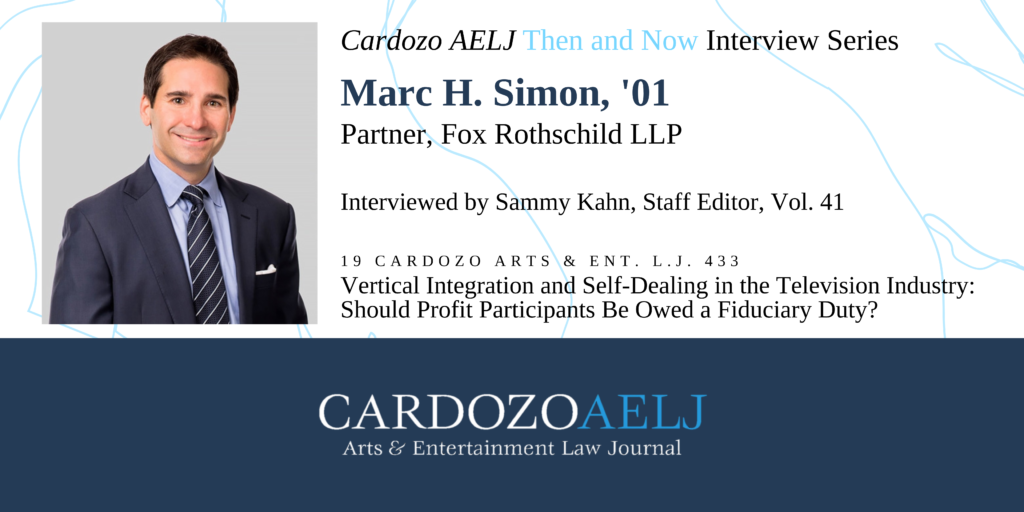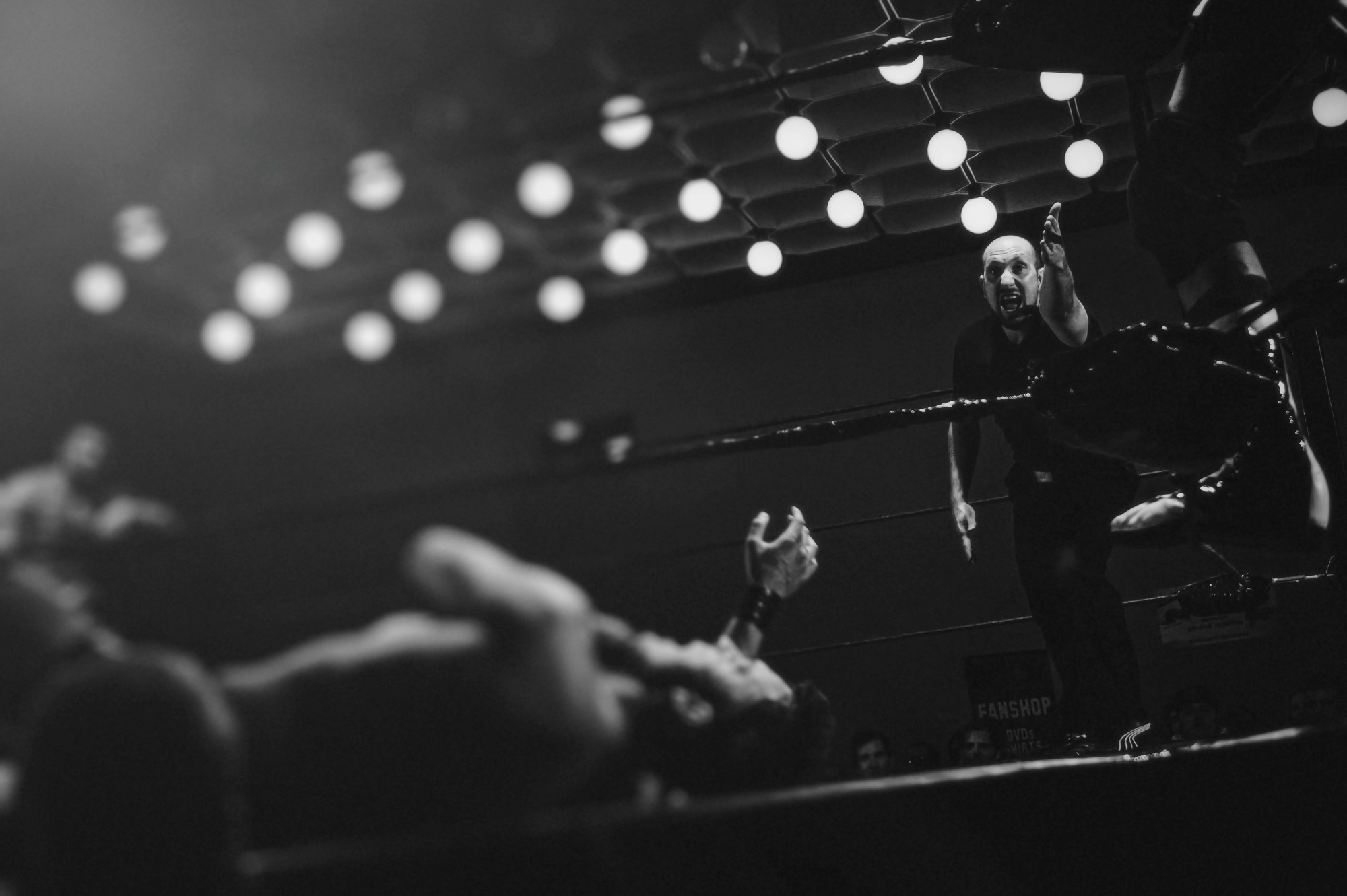
Marc H. Simon, Cardozo Law Class of 2001, is a Partner at Fox Rothschild who serves as the Chair of the firm’s Entertainment & Sports Law Department. During law school, Marc was a member of the Cardozo Arts & Entertainment Law Journal, and his Note was published in Volume 19.
Marc is a veteran entertainment attorney with a broad range of experience in film, television and digital media. Additionally, Marc is an award-winning filmmaker, who has directed and/or produced the feature documentaries After Innocence (2005), Nursery University (2009) and Unraveled (2012) and executive produced The Eagle Huntress (2016). Marc’s full biography, which includes more information on his career as a filmmaker can be found on Fox Rothschild’s website.
Our interview with Marc was conducted by Sammy Kahn. Sammy is a Second Year Law Student at the Benjamin N. Cardozo School of Law and a Staff Editor on Vol. 41 of the Cardozo Arts & Entertainment Law Journal. Sammy is interested in corporate law, entertainment law, and antitrust.
SK: How has your work as an award-winning filmmaker influenced your perspective as a legal consultant to creators who may find themselves in positions you have been in?
MS: My experience as a filmmaker influences my work as an attorney on an everyday business. I sport and comprehend issues from my client’s perspective in a very real way, that is distinct from most other deal makers because I personally understand how the issues effect the creative process and the artist’s view of the creative process. I think I’m a very strong artist advocate because I’ve previously been in the fight as an artist.
SK: What is one difficulty that arises in dealing with a modern social media influencer’s needs as a client?
MS: In my experience influencers are sometimes a bit naive about the industry and deal making processes, so they sometime lack the patience necessary to address matters in the way their attorneys may counsel, or to understand the wins that their representatives obtain.
SK: How important is it to have the resources and reputation of a big law firm behind you in representing big names in the entertainment industry?
MS: At the end of the day attorneys must stand on their two feet, regardless of whether they are solo practitioners or at bigger law firms. I know great attorneys working in both scenarios.
SK: Do you personally prefer working on financing projects themselves or talent negotiation?
MS: I enjoy both aspects–I truly like being in the room where it happens, with passionate and smart creatives, and I find this with both types of clients and deals.
SK: 21 years ago you wrote “Vertical Integration and Self-Dealing in the Television Industry: Should Profit Participants Be Owed a Fiduciary Duty?”1 for Cardozo AELJ Volume 19. How have you seen the legal issue evolve since then, specifically with the emergence of major video streaming platforms?
MS: Don’t tell anyone it’s been 21 years!!!! With recent consolidation of media conglomerates, this issue will remain an issue. However, the cases almost often settle before going to court. With regard to streaming specifically, in recent years, the trend of back end buyouts has reduced or eliminated profit participation, but I expect this to be a short-lived trend, so we’ll be seeing the problems associated profit participation in a vertically integrated landscape appear in the streaming landscape.
SK: What early advice would you give to young prospective lawyers who are interested in starting a career in the field of entertainment law?
Read the trades, understand trends and issues, be passionate about the field, build relationships with individuals in the industry and pursue your path with vigor and precision.



